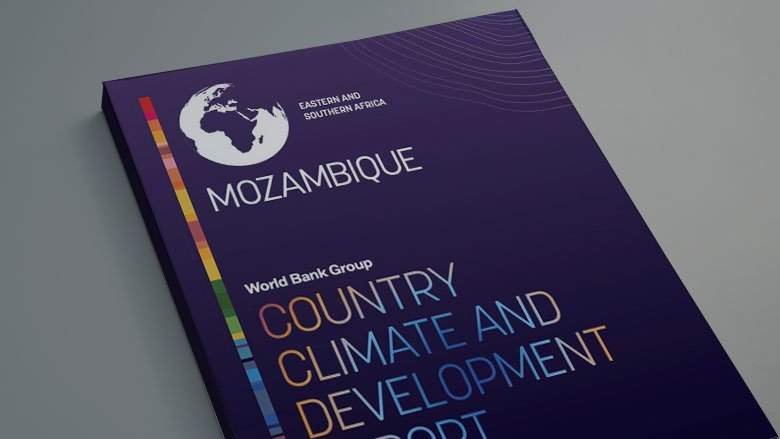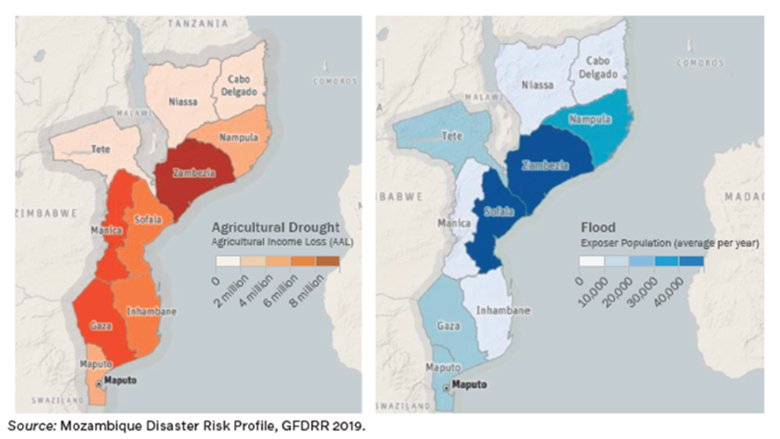The Mozambique Country Climate and Development Report (CCDR) underscores the urgency of mainstreaming climate action into Mozambique’s planning, given the country’s vulnerability to the effects of climate change.
The CCDR assesses how Mozambique's development path and priorities might be affected by climate change and global decarbonization and suggests ways to respond. This report identifies options for implementing climate-resilient development within a fiscally constrained framework. It highlights the need for Mozambique to prioritize policies and investments that enhance its resilience to climate change, manage transition risks, and take advantage of global low-carbon trends.
Figure 1: Agricultural income losses to drought by province; Figure 2: Population at risk from flooding
In addition, the CCDR offers a set of four high-impact priorities to boost climate adaptation, build resilience, and foster low-carbon growth while improving development outcomes:
- adopting economy-wide measures to enhance adaptive capacity
- prioritizing the development and management of critical infrastructure
- protecting the most vulnerable while promoting green, resilient, and inclusive growth
- leveraging Mozambique's energy and mineral wealth.
Climate change will compound Mozambique's development challenges. By 2050, under the worst-case "hot" climate projection scenario, Mozambique's poverty level will increase by 5%, pushing 1.6 million additional people into poverty. If no significant structural transformation takes place, inequality, as measured by the Gini coefficient, will hardly change by 2050 under all the climate scenarios analyzed.
This CCDR estimates that the level of investment needed until 2030 to achieve climate resilience of human, physical, and natural capital amounts to $37.2 billion. The cost of inaction will likely be higher. On the other hand, expected revenues from Liquified Natural Gas (LNG) sales will enhance the country’s debt sustainability and can generate significant fiscal space to support investments in adaptation needs and climate resilient infrastructures, but these are expected only after 2030. In the interim, investments in resilience and adaptation should focus on the most urgent needs.

